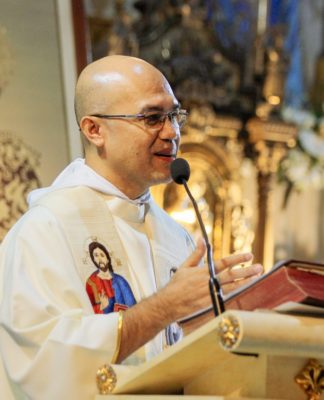GENDER Reassignment Surgery (GRS) or “sex change” has become a major concern among physicians today due to the multifaceted issues this growing industry involves. In the UST Faculty of Medicine and Surgery’s 12th Postgraduate Course in Bioethics last Feb. 5 at the Continuing Medical Education Auditorium, physicians discussed the psychological, physical, and bioethical implications of GRS, as well as transsexualism and homosexuality.
“Gender dysphoria or transsexualism has many forms and reflects varying degrees of dissatisfaction with sexual identity, characteristics and gender roles,” said Dr. Pureza Onate, former president of the Philippine Psychiatric Association.
Onate, who has worked in gender clinics and handled patients suffering from gender dysphoria, said that one in 11,900 males and one in 30,400 females suffer from this gender identity disorder. She said that people with strong fantasies of possessing the opposite sex’s body usually seek GRS for their fulfillment.
According to Dr. Jaime S. Jorge, a Psychology alumnus of UST and a physician who specializes in sexual reassignment abroad, GRS involves surgeries on the eyes, nose, Adam’s apple, muscles, breasts, and other body parts to make the patient look like the opposite sex besides the genital surgery proper.
“The male patient then undergoes penectomy (amputation of penis), orchidectomy (testes removal), vaginoplasty (creation of vagina), transposition of urethra, and formation of labia and clitoris,” he said.
Jorge explained that GRS has its limits and consequences. “Some patients mistakenly think GRS could turn them to a real female or male, capable of all feminine or masculine functions” he said. “GRS definitely makes it impossible for them to procreate, and may lead to complications of severe bleeding and perforation of the urinary bladder and rectal wall, wherein fecal material or urine comes out in the artificial vagina.”
Fr. Jerry Manlangit, OP, regent of the Faculty of Medicine and Surgery, and former ecclesiastical adviser to the Catholic Physicians’ Guild of the Philippines, discussed the ethical problems of GRS.
“It is the person’s creative duty to develop, use, and preserve that which is set by nature. One must not destroy one’s body in order to achieve something which leads to a never ending frustration. Transsexual surgery is only a change in physical appearance, and does not capture the essence of male or a female,” Manlangit said.
Manlangit quoted studies saying that eight out of 10 of those who undergo GRS, including those who passed intensive pre-surgery evaluations, regret it afterwards. Most of those seeking GRS also don’t proceed to the operation.
“When there is dissonance between human body and mind, of an identity ‘trapped’ in a body, the solution is not to change the body because the problem is mental. Rather, the relief of anxiety should be made through psychotherapy,” he said.
Manlangit noted that the Johns Hopkins University, an international research center in Maryland, USA,, gave evidence that “GRS shows no advantage over psychotherapy.”
Regarding this claim, Dr. Angeles Tan Alora, executive director of the South East Asian Center for Bioethics and former dean of the UST Faculty of Medicine and Surgery, held that part of the problem in helping transsexuals is the belief that homosexual behavior is normal.
“Dr. Robert Spitzer, who was responsible for removing “homosexuality” from the list of disorders in psychological textbooks 25 years ago, now believes that it is a disorder that can be treated. There is now the US-based National Alliance for Research and Therapy of Homosexuality or NARTH, an organization of psychotherapists that deals on this matter,” she said.
Alora said that genetic and biological predispositions to homosexuality have already been discounted. “Even if homosexuality be genetic, it does not follow that it is not a disorder, or that it can’t be treated. A lot of genetic disorders are subject to treatment,” she said.
Vinz Santiago, the first operated transsexual in the Philippines, expressed his regrets about GRS. He said he is now heterosexually oriented.
Vinz, known Vina Santiago in the 70’s and 80’s, was a victim of child sexual abuse and exhibited feminine appearance and behavior since childhood. He won over women in beauty contests here and abroad, was a Playboy Club performer, and once married a man after transsexual operation.
“I wanted to ease the pain of being ridiculed as ‘bakla’ since a kid, so I went further and further until the point that I had had a sex change” Vinz said. He added he was very happy during the first five years after his transsexual operation but later realized that “it’s like living a big lie.” “I conceive myself as a real woman I’m not going to be,” he said.
Vinz now heads Called to Be Free, a support group giving free counseling to homosexuals. He invited Thomasians to seek his help.
“You don’t even need to pay much to psychotherapists for a change. The joy of peace you can have with having a firm relationship with your Maker,” he said.

















